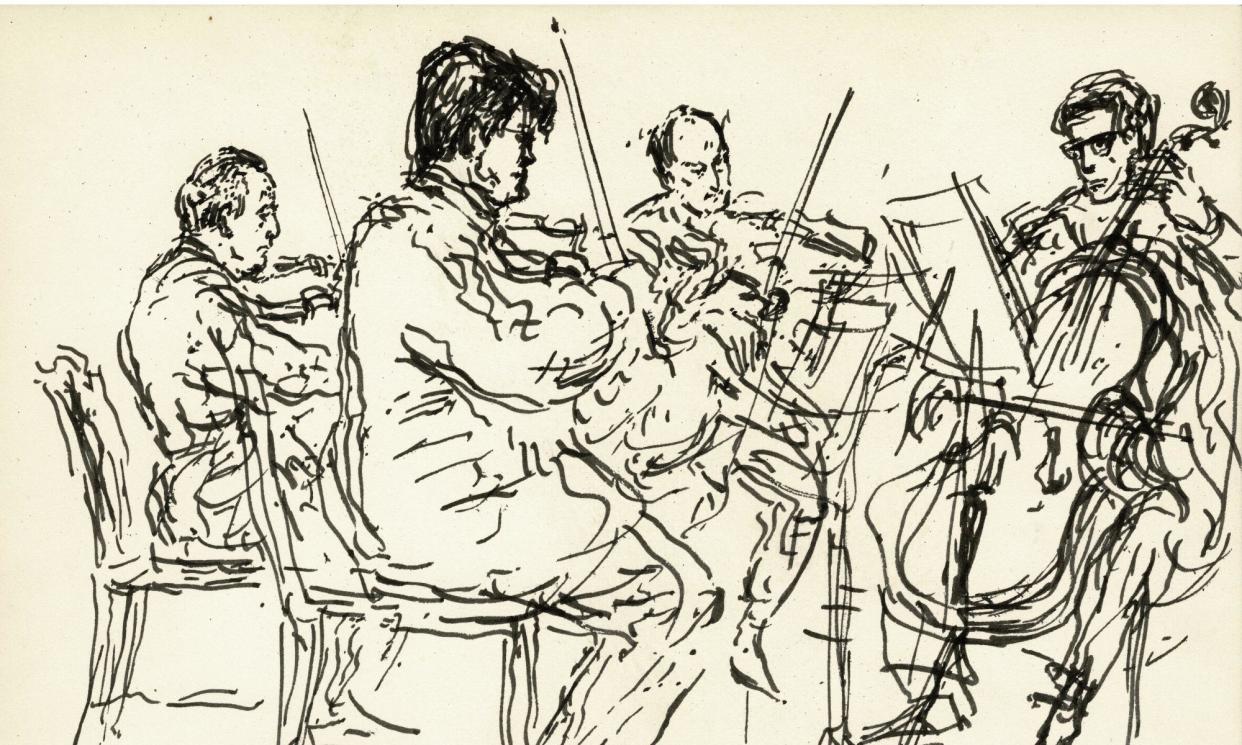Festival to celebrate second world war refugees' influence on British culture

They are far from household names but perhaps should be: Fritz Busch, Carl Ebert and Rudolf Bing in the field of opera, the photographer Gerty Simon, and Hans Schleger, the graphic designer behind the London bus stop sign.
All fled the Nazis as refugees, and each played an important part in shaping different aspects of British culture.
They and many others will be celebrated in 2019 as part of a year-long nationwide festival that tells the stories of refugees from Nazi-occupied Europe. The Insiders/Outsiders festival, which begins in March, includes a blizzard of events at venues such as Tate Britain in London, Glyndebourne in East Sussex and Abbot Hall art gallery in Cumbria.
Monica Bohm-Duchen, the festival’s creative director, said the aim was to pay tribute to a disappearing generation and explore a subject both historical and contemporary.
“These issues are very much in the air at the moment, for better or for worse … the contribution of refugees then and now is clearly deeply topical,” she said.
The subject is important to Bohm-Duchen on a “fundamental, elemental” level because both her parents came to Britain fleeing the Nazis – her father from Poland and her mother, the photographer Dorothy Bohm, from Lithuania. Bohm arrived aged 14 in 1939 with a Leica camera given to her by her father as a parting gift.
Bohm-Duchen said she had been discussing a single project about emigre artists when she realised that it could be a much bigger thing. “It was a germ of an idea which has grown and grown and grown beyond my wildest expectations but much to my delight.”
As word spread, Bohm-Duchen was surprised by how many organisations were already planning events on a similar theme, which led them to becoming festival partners. “I have been delighted by the level of interest and support – it has been heartwarming in this rather ugly, cruel world of ours at the moment.”
She said the contribution of refugees to the UK was often mentioned in passing but rarely looked at in detail. “It is a disappearing generation, on the verge of passing into history but not quite. It is a good time to be playing homage to them.”
Events in the festival will tell stories that are sometimes half-known or unknown: for example, the role refugees played in creating the quintessentially English opera festival Glyndebourne.
Founded in 1934 by the English landowner John Christie at his home near Lewes, Glyndebourne’s success owed much to him meeting two Germans unable to work in their home country under the Nazis. Busch, from Dresden, and Ebert, from Berlin, became conductor and producer respectively, with sole responsibility for artistic matters.
The involvement of the Vienna-born Bing, who became general manager in 1936, helped propel the organisation’s international importance even further. After the war he helped found the Edinburgh international festival and was its first director.
Another who will be celebrated is Simon, a German Jewish photographer who photographed many of the leading political and artistic lights in Weimar Berlin, including Kurt Weill, Lotte Lenya and Max Liebermann. After finding refuge in Britain she photographed Kenneth Clark, Peggy Ashcroft and Nye Bevan, among others.
A collection donated in 2016 to the Wiener Library, the world’s oldest institution devoted to the study of the Holocaust, that includes hundreds of her original prints will go on display there as part of the festival.
At the London Transport Museum, the work of emigre poster designers will be celebrated, including that of Schleger, who will forever be known for a design for London bus stops that is still in use today.
There will also be an exhibition at the Pallant House gallery in Chichester devoted to Walter Nessler, a German emigre who, although not Jewish, was considered a degenerate artist by the Nazis. Abbot Hall in Kendal will stage a wider exhibition devoted to refugee artists fleeing the Nazis, including work by artists such as Hilde Goldschmidt and Kurt Schwitters.
An exhibition at Tate Britain, opening in June, on the Bauhaus in Britain will also be part of the festival.


